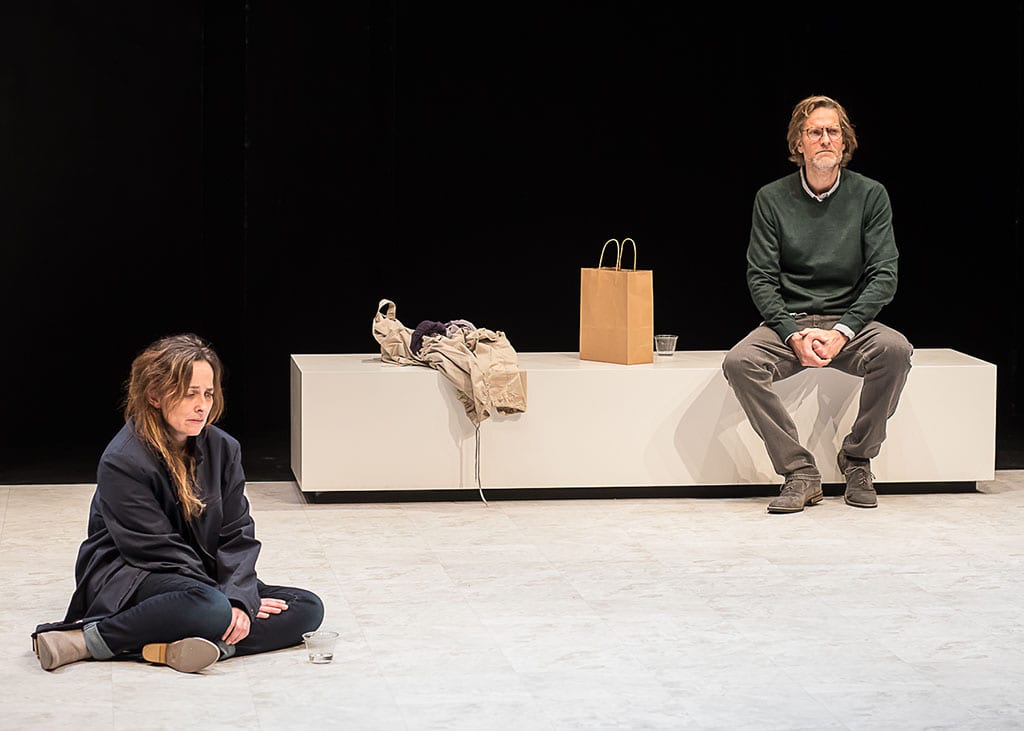It is easy to see why Poison is an international hit. The delicate yet hard-hitting show about the grief of losing a child written by Dutch playwright Lot Vekemans, has been translated into 15 languages, accrued awards all over Europe, and has an English movie version in development. Perhaps its success is owing to its ability to find love, humor and hope in the midst of so much pain.
In Poison a man and a woman meet for the first time after a painful separation brought about by the loss of their child. They carefully dance around each other to conceal their current truths, to maintain boundaries and the walls built around their old hurts. But try as they might to avoid their pain, the flood breaks through the dam, and old wounds are opened once more. How they deal and what they reveal as they attempt to heal is a true mirror to humanity.
The set is a simple frame for the raw emotion delivered by the actors. Clean, clinical, and starkly minimal, the set consists of a tiled marble floor, a long white bench, and a cold drink vending machine. The lighting is elegant and supportive of the action, shining an inescapable light on the unraveling happening before us. The set and costume, designed by Jian Jung, and lighting, designed by Jeaneate Oi-Suk Yew, was a perfect diadem for the crown jewel: the acting.
A two-person show between He, played by Michael Laurence, and She, played by Brigit Huppuch, Poison has some of the best acting I’ve seen in some time. It is viscerally full and humane with none of the inconsistencies that damage one’s suspension of disbelief. It’s the kind of acting that requires absolute faith and confidence to pull off. What struck me most was the courageous use of silence. The subtlety in their body language and rawness of their energy beneath the carefully crafted masks is flooring.
Director Erwin Maas did a phenomenal job of crafting the show. He created the space that allowed the story to ebb and swell and gave the necessary room for such an operatic emotional journey. The scenes were intercut with arias sung by contra-tenor Jordan Rutter while moving slowly throughout the stage reminiscent of the funeral procession of the young boy the couple had buried while at the same time reminding us of the beauty in life.
Poison has a double meaning in this play: the first is the literal reason behind their meeting and the second is the slow poison of Grief. How the inability to take positive action in the face of such an overwhelming emotion can poison a life. Poison shows the audience how to effectively cope and move through it: it takes courage, the acknowledgement of deep pain and the willingness to let go: of the past, of the expected future, and the perception of what happiness should be.
This is a show for those who are able to at once see the beauty and horror of life, for those who carry grief in their hearts, and for those who have their own healing to do. Anyone who is intrigued by human behavior, by relationships, or just by phenomenal acting should go see this show. It comes recommended.

